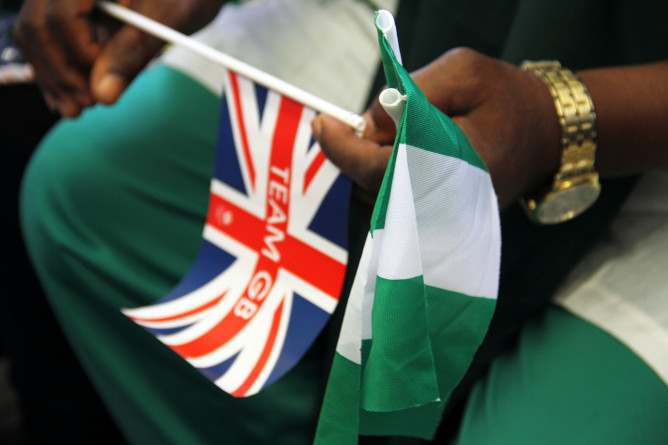Football and Betting in Nigeria: How Local Leagues are Shaping the Betting Market
Football is almost like a religion in Nigeria. It

Football is almost like a religion in Nigeria. It is on the streets, in conversations, in WhatsApp groups. People argue about line-ups, referees and, of course, odds. In this atmosphere, excitement sooner or later turns into betting. Not because of the pursuit of wealth, but because betting on your own team is part of the culture.
But while it used to be mainly about betting on the Premier League or the Champions League, now it's increasingly about completely different teams: Enyimba, Kano Pillars, Plateau United. Local clubs, local matches — and a very real interest among players, which is no longer just interest, but a market on sites like Paripesa Nigeria.
Why Local Leagues?
It's simple: accessibility. Many matches in the Nigerian Premier Football League (NPFL) are broadcast live on local channels or streamed online. People know the teams, the players, the coaches. And where there is understanding, there is a higher chance of a successful prediction. It's not just emotion, it's a conscious choice.
For example, a fan from Ibadan who has supported Shooting Stars all his life can name the starting line-up without Googling it. He knows exactly how the team plays at home, who has just returned from injury, and which clubs play worse away from home. Such a player feels the match, rather than just betting on the odds.
How Bookmakers are Responding to Demand for Local Football Leagues
With the growing interest in betting on Nigerian football, bookmakers have begun to actively adapt their platforms to local realities. A few years ago, bets on local league matches were rare, but now they have become a regular part of the line-up. Users can find events from different divisions, including the top league and even minor tournaments.
In response to demand, more in-depth and diverse markets have emerged: you can bet not only on the outcome of the match, but also on additional events:
- Number of goals
- Half-time/match
- Individual team statistics, etc.
How the Growth of Interest in Betting is Affecting the Development of Nigerian Football
When people in a country start actively betting on local league matches, it triggers a chain reaction. At first, it looks like just increased interest: people discuss the game while waiting in line, argue in chat rooms, and place bets on their days off. But then other market participants join in, and football ceases to be just a field and a ball.
First, the audience grows. When people bet on a match, they start watching it. NPFL online broadcasts, which used to attract a couple of thousand viewers, now consistently attract tens of thousands — because viewers have a personal interest. The audience is an asset that clubs can monetise: attract sponsors, sell merchandise, expand their media presence.
Secondly, transparency and accountability are increasing. If money is being bet on a match, people want to understand who is playing, how objective the line-up is, and whether there are any suspicious moments. This pushes clubs and the league as a whole to work more professionally. Regular reports, review of referees‘ decisions, and combating manipulation are all becoming important not only for fair play but also for bettors’ trust.
Third, a new source of income is emerging. Bookmakers don't just take bets — they become partners with clubs and leagues. You can already see local bookmakers placing their logos on team uniforms or sponsoring broadcasts. This is a direct injection of money into club infrastructure, which often operates on the brink of survival.
Finally, it affects the players themselves. When a match attracts more spectators, footballers begin to feel that they are really being watched. This increases motivation, changes their approach to training and shapes their career ambitions. In the long term, this could even affect the export of players abroad. Scouts are more likely to watch actively discussed championships than those that no one talks about.
Thus, the growth of betting on local leagues is not just a surge of interest from players. It is a tool that is gradually changing the structure of Nigerian football: from the perception of the spectator to the business model of clubs. And it seems that this process is only gaining momentum.
Betting is Not Always about Money
In Nigeria, people often bet not to get rich, but to make watching the match more interesting. A buck or two on your favourite team is not a way to make money, but a way to be part of the action. Yes, some people play big, and for them it's a job. But the vast majority do it out of interest, excitement and emotion.
This is what makes the market alive. And this is what distinguishes it from faceless global schemes.
What is important to consider in local betting:
- It is better to follow local news and Twitter communities — this is where information about line-ups and injuries most often appears;
- Don't focus on ‘top predictions’ — local matches follow a different logic, which is often intuitive.
- Clubs in Nigeria are heavily dependent on their home form — away matches rarely go smoothly.
- Matches are often unpredictable in terms of halves — it is worth testing bets on the second half or combined markets.
- Lines may be updated with a delay — this can be used in live betting.
Conclusion
The Nigerian leagues are not a backup copy of European football. They are a separate, vibrant, dynamic world. And for betting, it is becoming increasingly interesting. Players, bookmakers and the clubs themselves have started to interact differently. Local matches are no longer seen as background noise — they are becoming the centre of attention for hundreds of thousands of fans and tipsters across the country. Betting here is not just an attempt to make money, it is an extension of a passion for the game.







